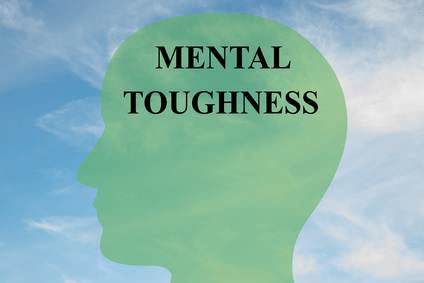
1. Maintain healthy, thriving relationships. Loneliness is an epidemic in the North America right now. More people than ever are feeling isolated and, in turn, anxious and depressed. Loneliness can have a staggering impact on one’s mental and emotional health, as well as one’s physical health—one study discovered that loneliness had the same impact on one’s life span as obesity and smoking. Loneliness, the study found, shortened a person’s life by 15 years. One of the best ways to protect your mental health is by prioritizing your relationships. Having strong interpersonal connections benefits us in countless ways: It helps us feel like we’re part of a community, gives our life meaning, makes us feel accepted and reinforces that we have people we can rely on during times of adversity. It’s important to remember that asking family members or friends for help if you’re struggling isn’t a sign of weakness, but rather strength. There should be no shame or embarrassment in asking for help. After all, being open and honest with your loved ones can help you begin the process of healing.
2. Exercise. The impact of exercise on one’s mental health cannot be emphasized enough. Whether you’re struggling with anxiety, depression, stress or any other condition, exercise should play an important role in your life. Exercise can improve your sleep, make you feel more relaxed and increase your body’s production of endorphins (often referred to as the feel-good hormones), which can improve your mood. There are countless ways you can reap the benefits of exercise. You don’t have to do high-intensity interval training or intense spinning to reap the benefits of exercise. In fact, just 30 minutes of walking each day can improve your mood and reduce stress, according to the NIMH. On top of that, just five minutes—the length of one song—of aerobic exercise, or cardio, can lower anxiety, according to the Anxiety and Depression Association of America (ADAA). For healthy adults, the recommended amount of exercise is 150 minutes per week of moderate activity (such as biking or walking) and 75 minutes per week of more vigorous exercise, like running, according to the HHS.
3. Challenge yourself. One of the worst things you can do in life is grow stagnant and complacent. If you stick with the status quo, you won’t get to enjoy one of the best things in life, which is the wonderful feeling you get from setting and achieving goals. Even if you think you’re at a good place in life and most of your goals have been achieved, there are always areas for growth. The importance of having goals to work toward shouldn’t be overlooked. After all, having purpose in one’s life is a crucial element of our overall happiness and life satisfaction. Take a look at your life and find an area for growth. Perhaps you want to get in better physical shape, save more money for retirement, publish a book, travel to 10 countries, have children or learn a new skill. Whatever you identify as your goal, write it down.
4. Practice gratitude. If you’ve ever felt overly anxious, stressed or depressed, you’re likely familiar with the onslaught of never-ending negative thoughts. One great way to combat negative thinking is by practicing gratitude. There are countless ways to practice gratitude each day. One simple and effective way is by journaling each morning or evening. Spend 10 or 15 minutes journaling about the things you’re thankful for, both small and large. Strive to list anywhere from three to 10 things. Explore the big-picture things you’re grateful for, such as your health or family, as well as small, daily things you’re thankful for, like the nice weather or a compliment your co-worker gave you about your outfit.
5. Check in with yourself. You could be anxious, depressed or overly stressed and not even realize it. Try to be attuned to your body and mind, and notice the symptoms that something might be awry. To check in on your mental health, ask yourself the following questions:
Am I still as interested in everything I used to be interested in?
Do I feel more irritated, angry or on edge than normal?
Am I drinking alcohol more than I used to?
Has the quality or quantity of my sleep diminished?
Has my appetite changed? What about my weight?
Do I have less energy than I used to?
Have my loved ones commented on any changes in my mood or behavior?
6. Learn about mindfulness meditation. Perhaps you’ve read about the benefits of meditation, but you either don’t have time to meditate or you don’t think it’s right for you. Enter mindfulness meditation. Mindfulness is a form of meditation that allows you to focus on (and even control, in some instances) your thoughts. It can be done anywhere, at any time. The goal of mindfulness meditation is to be more present instead of dwelling on the past or worrying about the future.
The benefits of mindfulness are far reaching: It can lower stress, improve your relationships, enhance your focus and memory, and help you feel more at ease. But how exactly does it work? Mindfulness can be practiced through deep, focused breathing. It can also be accomplished by going for a solo walk in nature or by practicing yoga. One other way you can practice mindfulness is by repeatedly reciting a short and uplifting message about yourself. Think of something that works for you (such as, “I am not my anxiety,” “I am strong,” or “I am fulfilled”) and repeat it to yourself. Aim to practice mindfulness meditation once (or twice!) each day for 20 minutes.
7. Prioritize your sleep. If you’re busy with things like work or raising small children, you might struggle to get seven to nine hours of sleep each night. But doing so is imperative. After all, being sleep-deprived will only exacerbate emotional and psychological problems. In fact, one study found that people who reported having insomnia were four times as likely to develop depression within the next three years. Good quality sleep isn’t just about getting seven to nine hours of shuteye each night. It’s also about getting sleep that is restful and will ensure you’re energized for the day ahead. If you wake up 10 or 15 times each night, you won’t feel like you’ve gotten enough sleep to prepare you for the day ahead. If you’re struggling to get restful sleep, try to incorporate practices into your life that will help you achieve better sleep, like meditation. Exercise every day, if possible, eat a well-balanced diet, and try to eliminate things like caffeine, alcohol and smoking, which can negatively impact sleep. Keep your bedroom dark, cool and quiet, and refrain from doing anything other than sleeping in your bedroom.
8. Incorporate self-care into your life. Self-care is different for each and every person, but it’s a simple concept: It’s important to take time to care for your physical, emotional and mental health in order to live a fulfilling life. Self-care can include things on this list (such as getting restful sleep, meditating and exercising), as well as other things that make you feel good about yourself. Examples of self-care include: eating healthy, traveling somewhere new, trying new things, relaxing at the beach, spending time with a friend, or splurging on a massage or other luxury. The type of self-care doesn’t matter as much as the effect: It should make you feel like you’re taking care of yourself in a way that combats anxiety, depression and stress. Carve 20 minutes into your day to focus on self-care. Make a healthy smoothie before work, go for a long walk at lunch or spend time laughing with your significant other before bed.
9. Don’t be afraid to seek help. If there’s one thing today’s teenagers and young adults have taught us, it’s the importance of seeking professional care when necessary. Gen Z is the most likely of all generations to seek mental health treatment. They understand that there should be no shame or embarrassment in doing so. In years past, there was a stigma attached to seeing a therapist or psychiatrist. But today, that stigma has been removed, as more people than ever are seeking treatment for their mental health disorders, especially with the rise of online, remote therapy. If you feel like you’re struggling with your mental health, don’t be afraid to seek out professional help.
I am so grateful for the progress and change that we have experienced as a family in the past year or so and trust that you all take the time to implement some of these strategies and ideas into your own lives.
Strength and courage,
Wade



